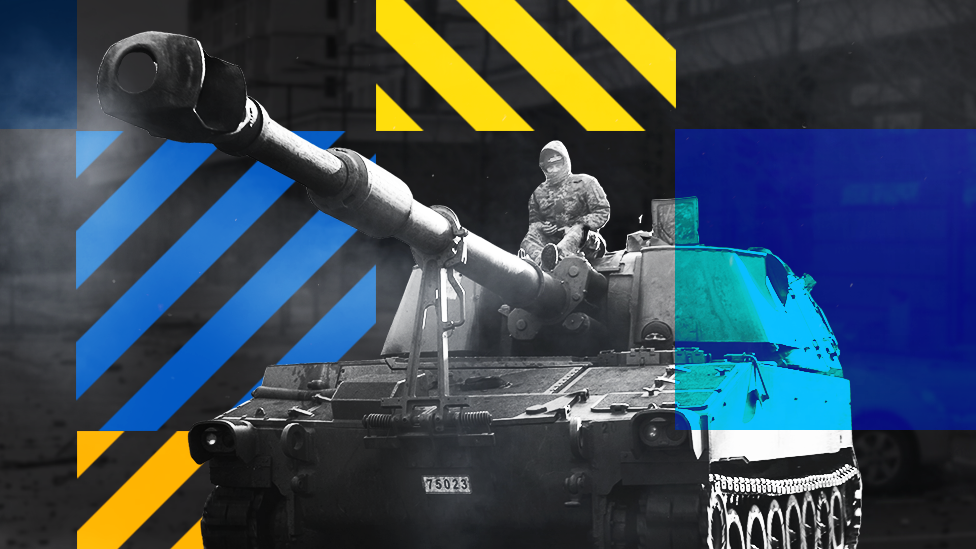Ukraine war: Chornobaivka airbase, symbol of Russian defeat
- Published
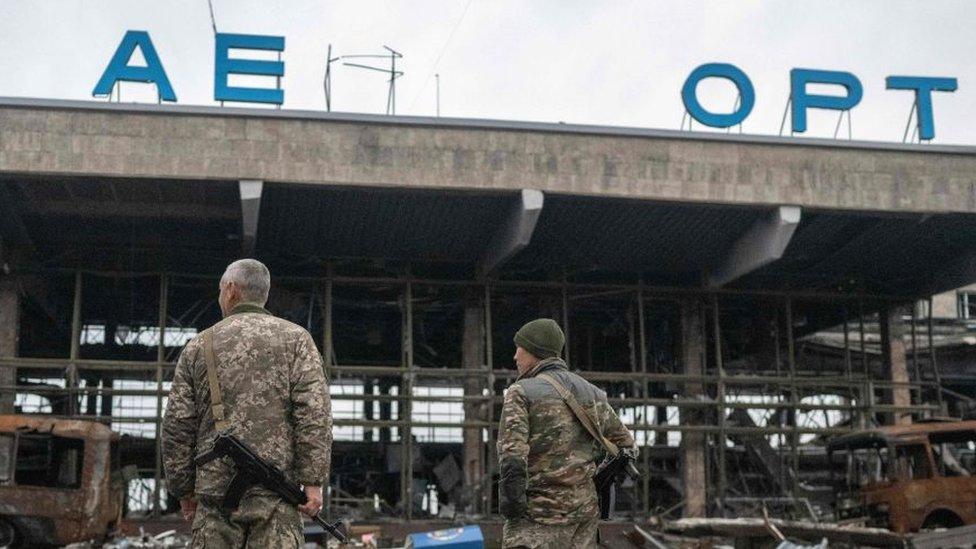
Ukrainian soldiers survey the destroyed airport building days after recapturing Chornobaivka
From the start of the war, a military airfield and village just outside Kherson city achieved legendary status in Ukraine. Captured by Russian forces within days of Russia's full-scale invasion in February, Chornobaivka was then repeatedly attacked by Ukrainian forces.
It became one of the most important battlefields of the war.
Russian hardware was airlifted in with the aim of reinforcing troops in the south. The initial ambition was to advance along the southern coast of Ukraine, first to Mykolaiv and then Odesa.
Most importantly, the airbase at Chornobaivka enabled Russian troops to steer clear of dangerous river crossings as they pushed to the west.
But occupying the base was to prove difficult. Russian helicopters and vehicles were destroyed and two Russian generals were killed there as Ukrainian forces picked off targets sometimes on a daily basis.
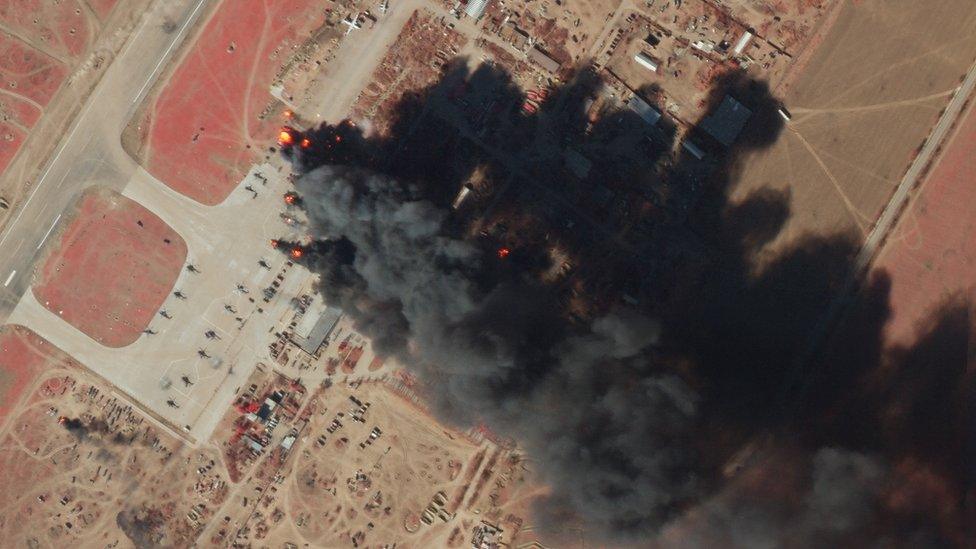
Ukrainian forces bombarded the airbase repeatedly, causing heavy losses among the occupying force
And that resistance gave birth to a symbol of Ukrainian glory and Russian defeat. Many Ukrainians saw Chornobaivka as representing their entire country, as Russia's invasion strategy fell apart.
It was glorified in songs and paintings and Ukrainians turned to black humour as they watched Russian forces flying into the base again and again, taking on ever-increasing losses.
The name Chornobaivka became a war meme for Ukrainians, synonymous with mass Russian casualties.
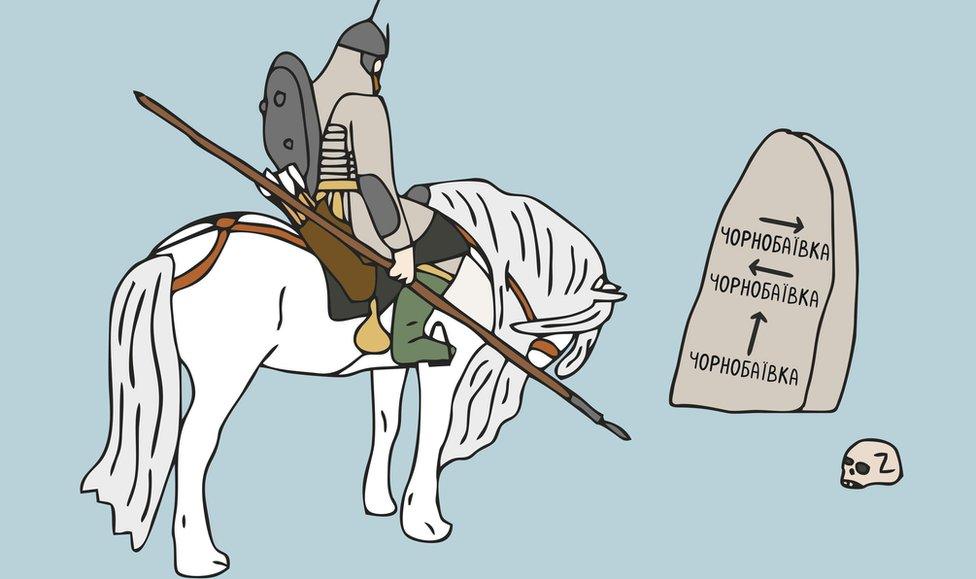
A cartoon shows that for this Russian knight every direction points to Chornobaivka - and certain death
Earlier this month Ukrainian forces recaptured Kherson city and Chornobaivka almost at the same time. Behind them Russian forces left a huge minefield and a graveyard of Russian weapons, vehicles and personnel.
Russian forces have never confirmed details of their losses in the south.
For weeks before the Russians pulled out, Ukraine's military systematically targeted bridges, command points and arms depots. However, the ministry of defence in Moscow said they had suffered no losses of either soldiers or hardware during their retreat from the western bank of the Dnipro river.
Beyond the debris of military occupation, another story has emerged of a small Chornobaivka community next door to the airbase, cut off from the outside world for months and becoming a symbol of national resistance without knowing it.
"We got out just a couple of times per month to buy food. We didn't go anywhere," said Viktoria who until the war had worked as an operator at the airfield. "We grew carrots, beetroot and potatoes in our backyard."
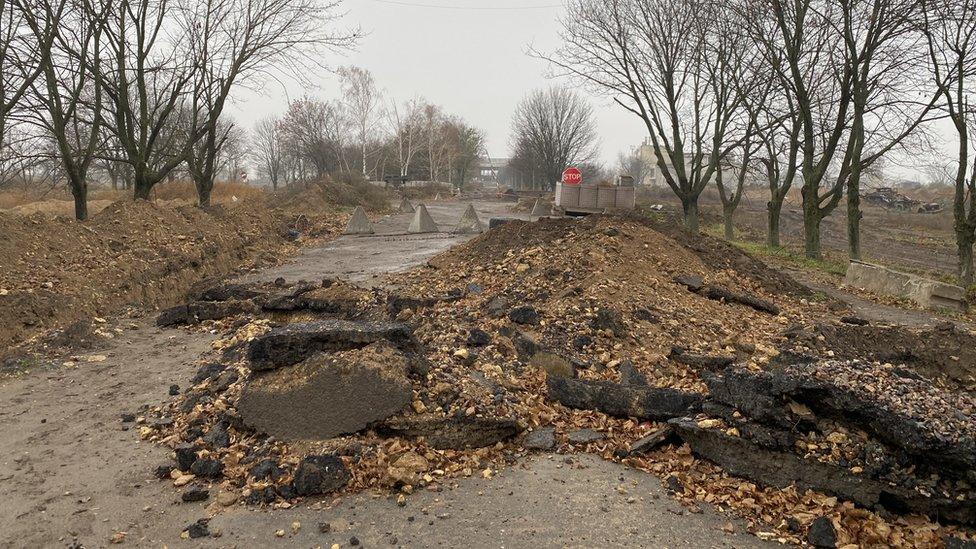
The area around Chornobaivka airbase is now heavily mined
Days into the Russian occupation, on 8 March, she remembered going with a friend to buy bread: "The Russians arrived at the shop in a tank and shot in the air. I'd never seen a tank in real life before."
Months later, her old place of work lies in ruins.
Sitting on a bench in the centre of the village, Svitlana Miroshnichenko, told of her shock at seeing Russian troops abusing her country's flag.
"When the Ukrainian flag was taken down, they trampled on it. Russians mocked the Ukrainian flag, they wiped their car windows with it. My heart was broken. Then they flew the Russian flag. We didn't accept it."
As they retreated from Kherson on 11 November, Russian forces destroyed all communications. Chornobaivka was off the grid and residents were unable to call their relatives.
A former teacher for 30 years at the local school, Svitlana talks of two former students killed on the battlefield and others still defending their country.
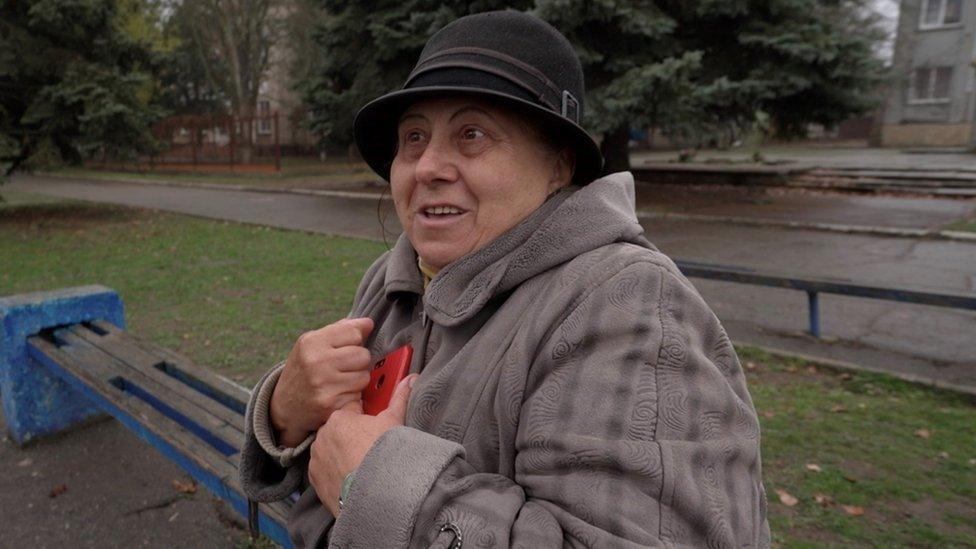
Svitlana Miroshnichenko remembers two former students at the local school who were killed in the war
The next stop will be to rebuild damaged houses and restore the power supply, but after that Chornobaivka will have to tackle the tensions within the community that built up during eight months of occupation.
"Some people stayed under the Russian occupation. Others fled," explains village leader Ihor Dudar.
"Some of them needed to evacuate their children. Others just felt a very strong fear. And now Chornobaivka residents who escaped feel that they are being judged for fleeing and getting too scared."
Remaining in the village under Russian occupation posed a deadly threat. Local authorities estimate that Russian forces shot and killed at least 20 civilians in Chornobaivka. Four local residents are still being held captive by the Russians.
"The Russian military were driving past the shop. They gunned down two teenagers after they just asked them for cigarettes. These two 19-year-old teenagers were my neighbours," Viktoria told the BBC.
Ihor Dudar showed pictures taken immediately afterwards of the two teenagers, Denis Dudchenko and Volodymyr Prylutsky, lying dead in a pool of blood. Ukrainian forces are investigating their deaths.
Ukrainians are now talking of setting up a war museum at the airfield. However, the war has not gone away.
Artillery shells continue to land very close to people's homes here. But despite the danger, many residents believe that for them the worst is over.
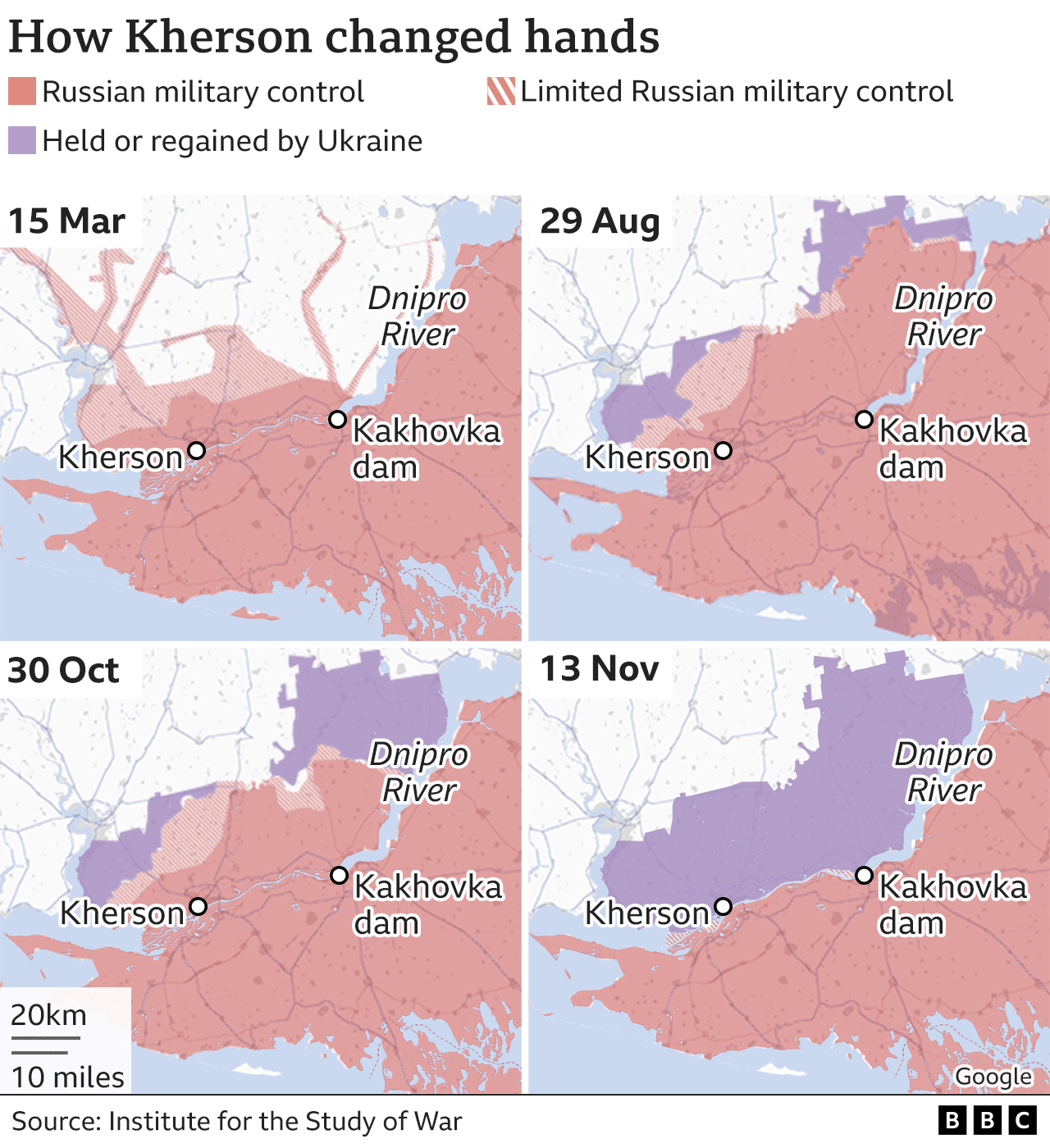

Additional reporting by Camilla Mills.
Related topics
- Published27 November 2022
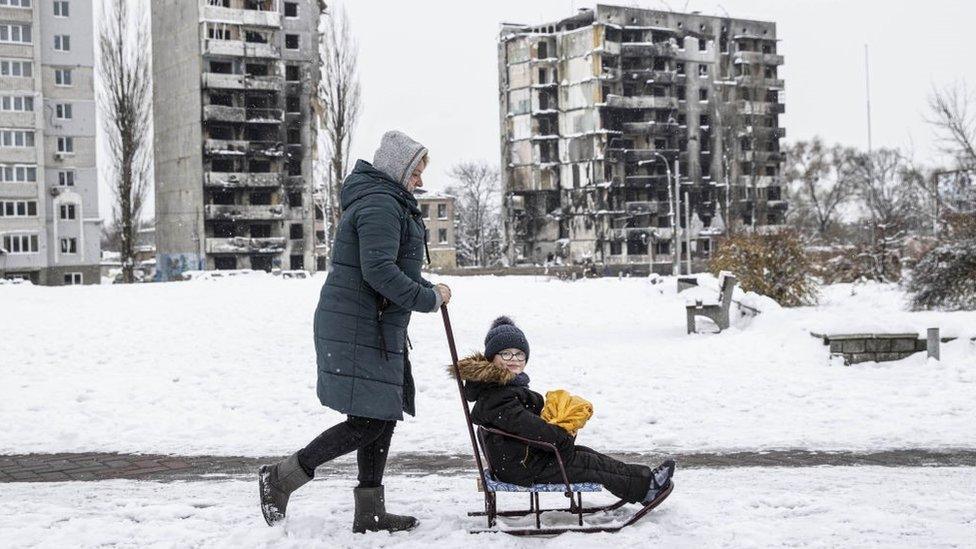
- Published11 November 2022
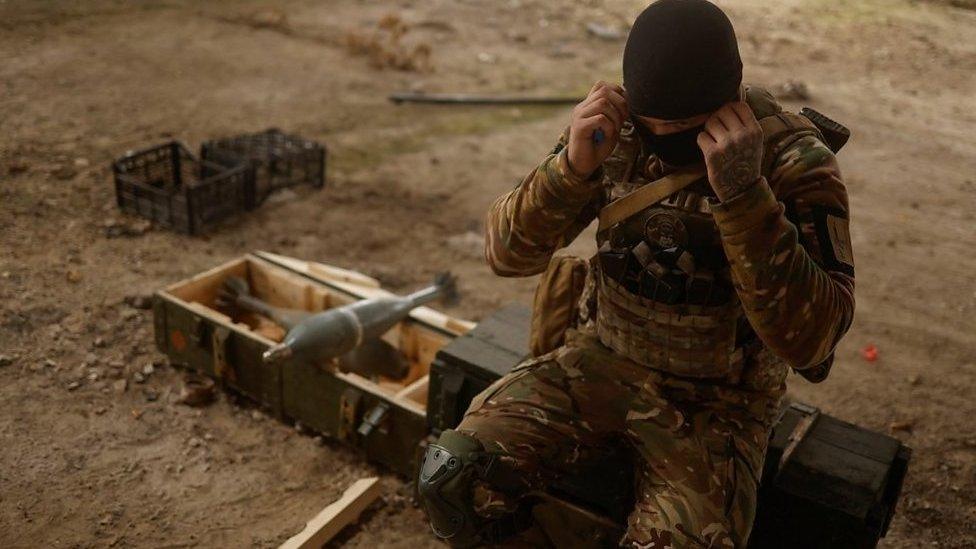
- Published24 February 2023
